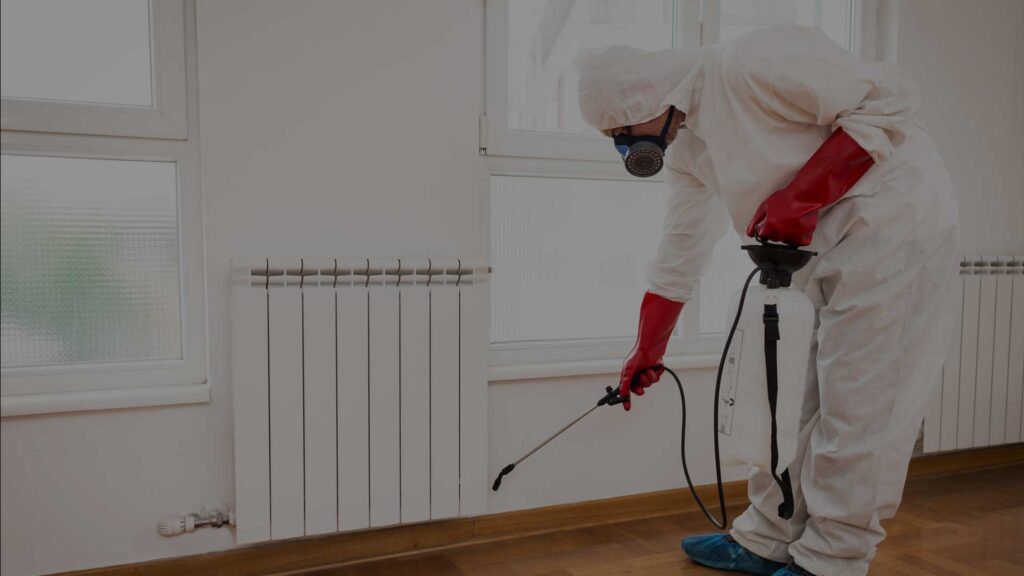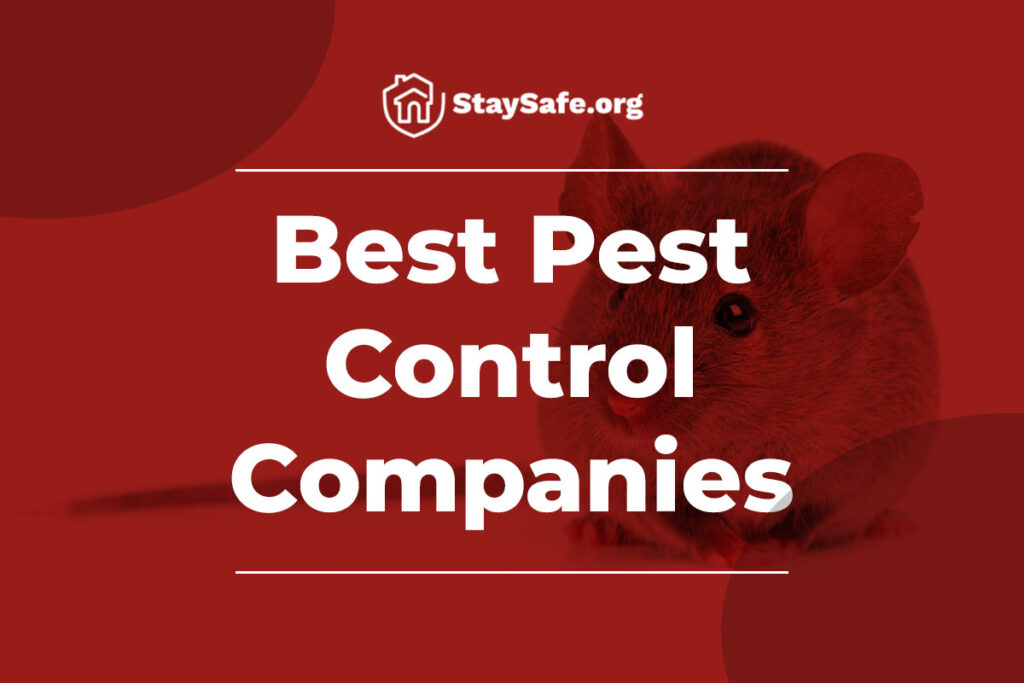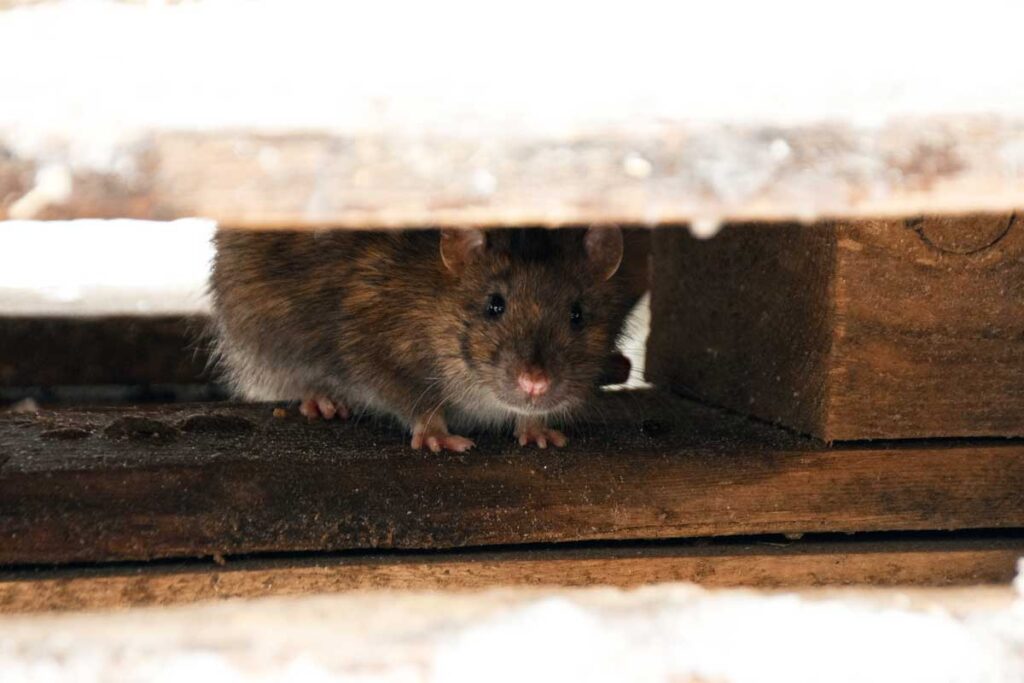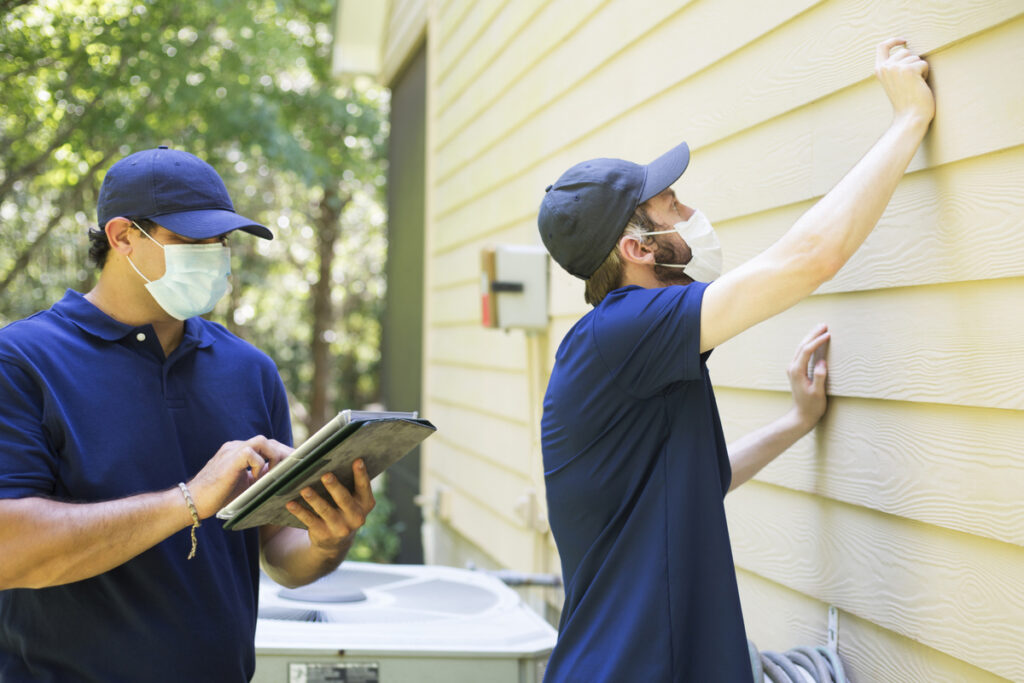Pests can invade our homes, causing frustration, health risks, and damage to our property. When faced with a pest infestation, enlisting the help of professional pest control services is crucial for effective and long-lasting solutions. However, to ensure the success of these services, proper preparation is essential.

The Need for Proper Preparation
Pest infestations can be a major nuisance, posing risks to our health, property, and peace of mind. Engaging professional pest control services is an essential step in eliminating these unwanted intruders. However, to ensure the success of the treatment and minimize potential risks, it is crucial to properly prepare your home before the pest control experts arrive.
Preparing Your Home for Pest Control Services
Should I Leave My House While the Exterminator is There?
The decision to leave your house during pest control depends on the severity of the infestation and the treatment method used. For instance, some treatments may require the occupants to vacate the premises due to the chemicals used. Typically, for indoor treatments, it’s advisable to leave the house temporarily. Pest control professionals often use chemicals that are designed to be safe around people once they’ve dried, but direct exposure during application could be harmful. Your exterminator will provide specific instructions based on the treatments used. It’s always best to err on the side of caution and vacate the house if you’re uncertain.
How Long Does Pest Control Spraying Take?
The duration of a pest control spray service largely depends on the size of the property and the complexity of the problem. A standard service for a moderate-sized home can take anywhere from 1-2 hours. If the infestation is extensive or the property is large, the process could take longer. Your pest control professional will give you an estimated time frame prior to the service. It’s important to allow for enough time for the process to ensure a thorough job.
How Long After My House is Sprayed Should I Come Back?
The length of time you should wait before returning home after a pest control spray varies depending on the type of chemicals used. Generally, it’s safe to return home 2-4 hours after the service is completed. This allows the chemicals enough time to dry completely, which is when they are safest. However, some treatments may require a longer wait. Your exterminator will provide specific instructions based on the products used.
What Should I Do With My Pets While My House is Being Sprayed?
Pets, similar to humans, can be sensitive to pest control chemicals. It’s best to keep them away during the pest control process. You can consider arranging for them to stay with a friend or relative, or at a pet care facility. If these aren’t options, confine your pets in a safe area far from the treatment zones. Also, ensure to remove any pet bowls or toys before the treatment begins.
Should I Clean My House Before Pest Control Services?
Cleaning your house before a pest control service is an excellent way to enhance the effectiveness of the treatment. By removing dirt and clutter, you’re allowing the exterminator easy access to areas where pests might be hiding. Before the service, vacuum your floors, clean your counters and make sure to declutter areas where pests may be hiding, like the basement or garage.
How Long Should I Wait to Clean My House After it is Sprayed for Pests?
After your home is sprayed, the pesticide residue left behind continues to work against pests. To not interfere with the effectiveness of the treatment, it’s usually recommended to wait at least a week before doing any deep cleaning. However, regular, light cleaning tasks like dishwashing or wiping surfaces are generally okay. As always, consult with your pest control professional for the best advice.
Does it Smell After Pest Control?
Some pest control treatments may leave a noticeable smell afterward. This is often due to the particular chemicals used and usually dissipates within a few hours after application. If the smell lingers for more than a day, you should contact your pest control company. It’s important to ensure that windows and doors are left open after the treatment, if possible, to allow for adequate ventilation.
Should I Clean My House and Wash My Bedding, Dishes, etc., After My House is Sprayed?
While it’s essential to wait for a specific period before deep cleaning the house after pest control spraying, personal items like bedding, dishes, and clothes should be cleaned. However, ensure you wait until after the recommended period to wash these items. This helps to minimize potential chemical exposure and ensure that any residue left behind doesn’t contaminate these items.
Is Pest Control Safe After it Dries?
Pest control treatments are designed to be safe for humans and pets once they have dried completely. However, during the application process and before drying, they can be harmful. Always follow the guidelines provided by the pest control company regarding when it is safe to re-enter your home. In most cases, you will need to wait at least a few hours after the treatment is applied. Once dry, the chemicals pose minimal risk to humans or pets.
Steps to Prepare Your House for Pest Control Services
General Preparations
Clearing Clutter
The importance of decluttering before pest control services cannot be overstated. Pests, such as cockroaches and rodents, thrive in cluttered spaces, which provide them ample hiding spots and breeding grounds. Accumulated papers, cardboard boxes, discarded clothes, and any other items that are not routinely used or moved can harbor these pests. By eliminating clutter, you not only make it easier for the pest control professional to navigate and treat your home, but you also remove potential shelters for pests, thereby enhancing the overall effectiveness of the treatment.
Sealing Food and Storing it Properly
Pests are attracted to food sources, which is why properly storing food is essential in pest control. Before the pest control service, all food should be sealed in airtight containers and stored in a safe place, away from the treatment areas. This includes dry goods in the pantry, fruits on the countertop, and even pet food. Properly storing food not only prevents it from being contaminated during the pest control process but also removes food sources that can attract pests back into your home after the treatment.
Protecting Sensitive Items
Pest control treatments can potentially harm or discolor sensitive items. Before the exterminator arrives, identify any items that may be susceptible to damage, such as electronic devices, delicate fabrics, artwork, or jewelry. If possible, move these items away from the treatment area. If this is not possible, cover them with a plastic sheet or something similar to protect them from exposure to the pest control chemicals.
Moving Furniture and Belongings
The movement of furniture and belongings is a critical step in preparing for pest control. Pests often hide in hard-to-reach areas like behind large furniture or appliances. By moving these items away from the walls, you allow the exterminator to reach and treat these hiding spots effectively. It also prevents your furniture and belongings from coming into direct contact with the pest control chemicals.
Preparations for Specific Areas or Items
Kitchen and Food Areas
Kitchens are a hotspot for pests due to the abundance of food and water sources. To prepare your kitchen for pest control, empty out your cabinets and pantry and clean them thoroughly to remove any food residues. Cover your kitchen counters and appliances to protect them from exposure to the pest control chemicals.
Indoor Plants
Indoor plants can sometimes be sensitive to the chemicals used in pest control treatments. To protect your plants, it’s recommended to either move them outside during the treatment or cover them to prevent any direct contact with the pesticides. Remember to move them back or uncover them only after the suggested waiting period post-treatment to ensure they are not exposed to the chemicals.
Clothing and Bedding
Clothing, bedding, and other fabric items could absorb the chemicals used in pest control. To prevent this, store these items in sealed plastic bags or cover them with plastic sheets during the treatment. After the treatment, wash these items thoroughly, following the recommended waiting period, to ensure they are safe to use.
Children’s Toys and Baby Items
Items used by children and babies need special attention during pest control. Their immune systems are less developed, making them more susceptible to potential harm from exposure to pest control chemicals. Make sure to store away or cover children’s toys, cribs, and other baby items before the pest control process begins. Thoroughly wash any items that could have been exposed to the chemicals before allowing children to use them again.
Avoiding Household Products or Chemicals
When it comes to pest control, the chemicals used are carefully chosen for their ability to eliminate pests while causing minimal harm to humans and pets. However, mixing these chemicals with other household products or chemicals might reduce their effectiveness or possibly create a toxic environment. Therefore, it’s recommended to avoid cleaning treated areas with household products for a certain period after the treatment. Avoid using air fresheners or other aerosols that could interact with the pest control chemicals. Your pest control professional will provide specific guidance on this matter.
Open Windows and Fans During or After Spraying
Ventilation is crucial in ensuring that any airborne residues of pest control chemicals are effectively dispersed. Therefore, it’s often advised to open windows and use fans to facilitate air circulation during or after the treatment. However, this must be balanced with the need to keep the chemicals in contact with pest-prone areas for enough time to be effective. Your pest control professional will give you specific instructions on when and how to ventilate your home, based on the chemicals used and the nature of the infestation.
Duration of Keeping Windows and Doors Closed
Depending on the specific pest control treatment used, you may need to keep your doors and windows closed for a certain period to ensure the maximum effectiveness of the chemicals. For example, certain types of fogging or fumigation treatments require the home to be sealed off to allow the chemicals to penetrate all possible pest hiding spots thoroughly. Your pest control service provider will give you precise instructions about when you can safely open doors and windows after treatment.
Precautions for Sensitive Individuals
Individuals who are particularly sensitive, such as pregnant women, children, the elderly, and people with respiratory conditions, may be more susceptible to the effects of pest control chemicals. These individuals should stay away from the treated areas until the recommended re-entry time has passed. If they experience any unusual symptoms like breathing difficulty, nausea, dizziness, or skin irritation after re-entering, they should seek medical attention immediately.
Health Risks Associated with Pest Control Chemicals
While pest control chemicals are typically designed to be safe for humans and pets once dry, they can pose health risks if improperly handled or if individuals are exposed to them during or immediately after application. These risks can range from mild irritations, such as skin or eye irritation, to more serious conditions, such as respiratory distress or, in severe cases, chemical poisoning. Always follow the safety instructions provided by your pest control service to mitigate these risks.
Mopping and Vacuuming Treated Areas
After a pest control treatment, it’s important to allow the chemicals enough time to work effectively. Mopping or vacuuming treated areas immediately after the service could remove the chemicals before they have had a chance to fully exterminate the pests. Your pest control professional will advise you on the appropriate time to start cleaning these areas post-treatment.
Washing Clothing and Bedding
If your clothing, bedding, or other fabric items have been exposed to the pest control chemicals, it’s important to wash them thoroughly to remove any residues. However, doing this too soon might inadvertently reduce the effectiveness of the treatment, particularly for pests such as bed bugs that can reside in fabrics. Your pest control service provider will give you guidance on the appropriate waiting period before you start washing these items.
Moving Furniture or Rearranging Items
Moving furniture or other items immediately after a pest control treatment can disrupt the chemicals’ dispersion and reduce their effectiveness. It’s generally advisable to wait until the recommended period has passed before you start moving items back to their original places. This allows the chemicals enough time to work effectively and ensure a pest-free home.
By following these steps and precautions, you can ensure a safe and successful pest control process. Always remember that your pest control service provider is the best source of information when it comes to specifics about the treatment used in your home.
Conclusion
Properly preparing your home for pest control services is crucial for successful pest elimination and ensuring the safety of your household. Clearing clutter, sealing food, protecting sensitive items, and following specific guidelines for different areas or items are essential steps in the preparation process.
It is important to rely on the expertise and guidance of pest control professionals throughout the preparation and treatment process. They have the knowledge and experience to provide appropriate instructions to maximize the effectiveness of the treatment and minimize any potential risks.
By taking the necessary steps to prepare your home for pest control services and following the advice of professionals, you are taking a proactive approach to maintaining a pest-free environment. Regular inspections and preventive measures will further contribute to the long-term success of pest control efforts, ensuring the well-being and comfort of your household.




